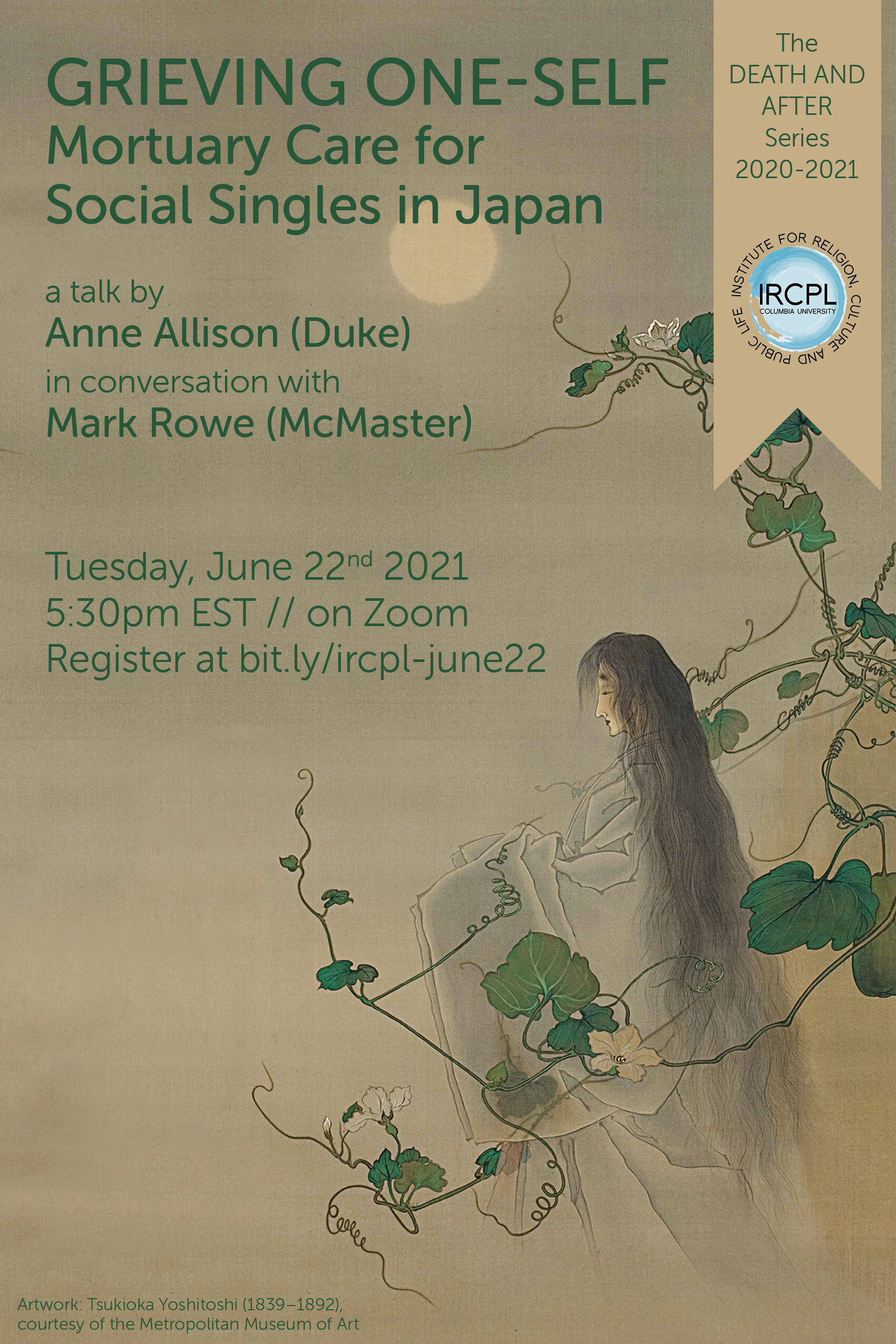A lecture by Anne Allison (Duke University), moderated by Mark Rowe (McMaster University).
In the face of socio-economic shifts—a high aging/low childbirth population, decline in marriage and co-residence, irregularization of labor and precaritization of life—the family model of mortuary care that once prevailed in Japan is coming undone. As more and more Japanese live and die alone these days, they face the prospect of becoming “disconnected dead”: stranded without a grave to be buried in nor the social others to tend to it once there. Given the specter of such a bad death, new designs and trends are emerging for both necro-habitation and care-giving the dead. Prominent here is making mortuary arrangements for and by oneself while still alive (seizen seiri). Such anticipatory death-planning is the issue taken up in this talk. Based on fieldwork with new initiatives and services catering to a clientele of aging singles in Japanese, it is asked: What kind of grievability is this when the sociality of being cared for by others is handled by the self in anticipation of death? Mortuary presentism; a new ontology of the dead?
Anne Allison is Professor of Cultural Anthropology at Duke University. A specialist in contemporary Japan, she studies the interface between material conditions and desire/fantasy/imagination across various domains including corporate capitalism, global popular culture, and precarity. Allison is the author of Nightwork: Sexuality, Pleasure, and Corporate Masculinity in a Tokyo Hostess Club (1994), Permitted and Prohibited Desires: Mothers, Comics, and Censorship in Japan (1996), Millennial Monsters: Japanese Toys and the Global Imagination (2006), and Precarious Japan (2013). She is currently finishing a book on new demographic/social trends in Japan involving death, solo sociality, and self-management of mortuary and post-mortem arrangements.
Mark Rowe is Associate Professor in the Department of Religious Studies at McMaster University.

